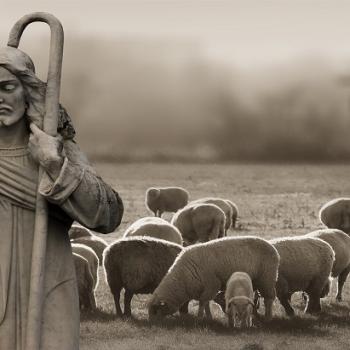Disney’s 60th feature film Encanto has captured many hearts for everything about it. The music is fantastic, the characters are wonderfully relatable, and the underlying theme of reconciliation is an important lesson for all ages. Praying over how to best write this article led to some unexpected inspiration. After writing in my last post about how Joseph and his brothers sought reconciliation, I saw a Biblical parallel in Encanto between Alma and Mirabel.
Spoiler Alert: This post will spoil Encanto if you haven’t watched it
Parallels
In a way, Mirabel (the protagonist of Encanto) is a foil to Joseph. Both of them wear signature items of clothing in multiple colors. They’re also the next-to-last youngest child in their kid group. Oddly enough, both Joseph and Mirabel are incredibly close with the youngest member of their group, Benjamin and Antonio respectively.
These two characters also deal with conflict between family members that only ends with humility-based reconciliation. When Joseph heard his half-brothers admit to him (while he was disguised in front of them) that they were full of genuine remorse for selling him into slavery, he happily welcomed them to his new home in Egypt.
Mirabel is an interesting foil to Joseph because of how her familial conflict plays out. Instead of facing against envious half-brothers, she has to contend with her abuela Alma Madrigal, the matriarch of their family. In Mirabel’s case, it takes a confrontation between the two before reconciliation can happen.
Cracks in the System
There’s been plenty of discussion on the web about the likelihood that how Alma treats Mirabel counts as emotional abuse. Unfortunately for Alma, there are key scenes in Encanto where her behavior against Mirabel points in this direction.
When Casita reveals the cracks to Mirabel while she wanders away from her cousin Antonio’s party, Mirabel runs to Alma to warn her. We see that Alma believes her and follows her to where Mirabel saw the cracks begin. But when all she sees is the normal house after the cracks have disappeared, Alma coldly cuts Mirabel off and infers that her youngest granddaughter was in a drunken stupor. Alma slanders her in front of the entire town, who’d come to celebrate Antonio’s gift.
Later that night, Mirabel hears Alma pleading with her late husband Pedro to help her save the miracle. Without knowing that Mirabel was in hearing vicinity, Alma admitted thusly that she was aware of the cracks, had chosen to gaslight Mirabel in front of everybody gathered, and flat-out lied about the situation.
https://youtu.be/syL5v1r6mNs
Isabela’s and Mirabel’s Reconciliation
Throughout the movie, Isabela, Mirabel’s oldest sister, seems to be on permanent ill terms with her. This hits a peak when Isabela’s proposal dinner with Mariano goes awry. Isabela believes that Mirabel ruined her proposal and is aghast when Mirabel comes into her room, asserting that they should “hug it out”.
Mirabel and Isabela get into a heated argument that ends with Isabela shouting a confession that she never even wanted to marry Mariano; she only did it because it would make others happy. This unexpected confession kicks off her fun song, “What Else Can I Do?”
Mirabel and Isabela sit down together in the middle of the song on top of a palma de cera. Mirabel tells Isabela, with genuine affection this time, that it is incredible watching her sister rise above her facade. Isabela and Mirabel dance together, swinging outside Casita, carefree and truly happy.
They swing into an affectionate embrace in front of the candle, just as Bruno saw in his vision. To Mirabel’s joy, she sees the cracks fade away. It is truly a shame that this newfound peace doesn’t last.
The Breaking Point
Alma sees all this happen from a distance while in the town and is displeased when she comes home. Instead of being amazed that two sisters who had been at each other’s throats for a long time had reconciled, Alma instead accuses Mirabel of causing chaos in their home.
And thus, a now-famous confrontation scene takes place where after 10 years of emotional abuse, Mirabel throws it all back in Alma’s face.
https://youtu.be/TDiBixlQHGs
In this scene, Alma Madrigal serves as an unfortunate parallel to King Saul from the First Book of Samuel. There’s a specific passage in the book where King Saul verbally lashes out at his son Jonathan after having proof that Jonathan has chosen to support David, the next king, over his father (1 Samuel 20:30). I can’t blame the guy! King Saul diminished the meaning of his anointing by trying to kill David, an innocent man.
The dialogue in that passage and how Alma speaks to Mirabel here have stark similarities. King Saul accuses his son of being disloyal, and Alma accuses Mirabel of hurting the family.
At last, Mirabel unleashes one of the most vicious one-liners in the movie. She tells Alma that her abusive treatment of the entire family is what’s been causing the miracle to die.
As sympathetic as Alma turned out to be in the end, it was so satisfying watching her face drop from anger to humbled shock at the truth of her granddaughter’s words.
That’s the Way La Casita Crumbles
I have a personal theory after watching Casita crumble here. Suppose we were to interpret Casita as an analogy for God’s will. In that case, we could assert here that Casita broke of its own accord, acting on God’s behalf to show how unstable the Madrigals’ wellbeing had become.
My theory is that, looking at this through a Christian sense, God used Mirabel’s words to brutally tell Alma that her granddaughter was right and that Casita crumbling into ruin was the retribution for her ignoring all of the warning signs up to this point.
I also believe either way, because Casita shoved everybody else but Mirabel outside while it collapsed, that it used this moment to show Alma and everybody else how much damage they had done to Mirabel’s psyche. Mirabel, at this moment, believes that her only worth was in risking her life to save the miracle. Unfortunately, all Alma can do is look on in horror at the result of her years’-long mistreatment of her granddaughter.
Behold this Bible verse from Colossians, which sadly speaks to how both King Saul and Alma treated their familial opponent:
“Fathers, do not provoke your children, lest they become discouraged.” (Colossians 3:21)
Alma’s Confession
It seems like the hand of the Divine that when Mirabel flees the scene, it is Alma who finds her—finding her by the banks of the river where her trauma happened 50 years ago, no less.
Alma humbles herself by sitting next to her granddaughter by the river. At last, she opens up and admits to somebody else how much pain she’s been harboring ever since watching her husband Pedro be murdered that night so long ago.
Hearing Alma admit that the family is broken because of her actions shows that while she does have parallels to abusive figures like King Saul, she is ultimately a foil to them all. Her genuine humility shines through here and helps Mirabel see things through a new lens. A lens that doesn’t excuse Alma’s behavior, but explains it for empathetic understanding.
How interesting is it that Mirabel repeats the phrase “because of you” here in gentle contrast to their previous confrontation?
The unconditional love between these two causes a great swarm of yellow butterflies to emerge, the river to light up with the colors of the sunrise, and a new day to begin. Along with Bruno, who shows up just in time to protect Mirabel from his mother’s potential rage, they head home and start the path of rebuilding from a solid foundation.
Resolution
Ah, and here we see a parallel to Jesus’ parables about building a strong foundation (Luke 6:47-49). It goes without saying that while Casita originally materialized on a foundation of love, Alma now sees that her desire to see stability all around her caused that foundation to crumble.
With unconditional love and honesty abounding in their family after her heart-to-heart with Mirabel, Alma watches with joy as the entire town aids them in building their future.
A Parallel for Christian Reconciliation
My next article is going to be about the whole hullabaloo in the church about deconstruction. I’ve seen some disturbingly unempathetic reactions to people seeking answers to their faith (especially this now-infamous recording of Skillet’s frontman John Cooper “declaring war” against deconstruction). It’s infuriating, seeing certain leaders in the church look down on people going through deconstruction when some of the testimonies I’ve listened to are beyond heartbreaking.
The individuals belittling those who’ve gone/are going through deconstruction are going to have to face the consequences of their actions. Namely, a civil but firm confrontation highlighting that by looking down on others for what they see as the “wrong path”, they’re not exemplifying Jesus…they’re exemplifying the Pharisees.
Featured Image by kundennote_com/Pixabay
Hello, and thank you for supporting my work here on Patheos! If you’d like to support me further, please feel free to “Buy Me A Coffee” here:












